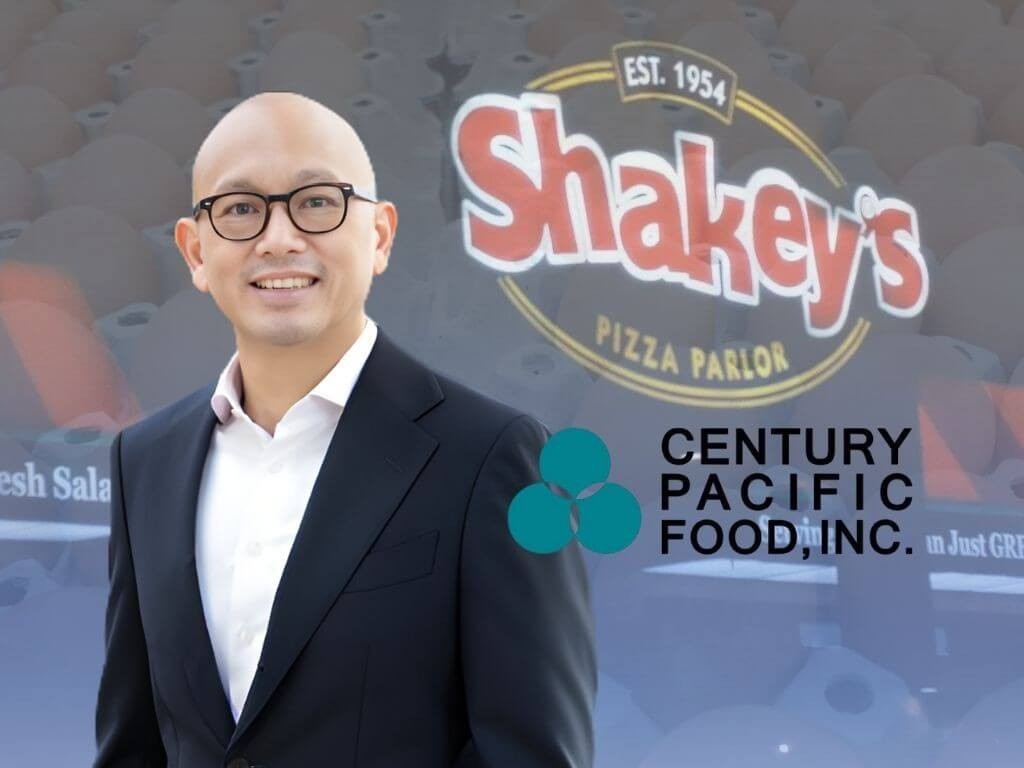

This widespread movement reflects growing consumer demand for humane and sustainable food production—and marks a significant shift toward responsible sourcing practices.
Since the start of the year, major players including The Figaro Group, Andok’s, and 333 Foods—together operating nearly 600 stores nationwide—have announced transitions to 100 percent cage-free eggs. They are joined by Cebu Pacific Catering Services, a key airline caterer, and several others, signaling an industry-wide realignment toward ethical sourcing.
Shakey’s, Century Pacific join the movement
Building on this momentum, two of the country’s most influential food companies—Shakey’s Pizza Asia Ventures, Inc. (PSE: PIZZA | SPAVI) and Century Pacific Food, Inc. (PSE: CNPF)—have also made public commitments to fully adopt cage-free egg sourcing across all their operations.
SPAVI, whose portfolio includes Shakey’s, Potato Corner, and Peri-Peri Charcoal Chicken, announced that all its brands are now mandated to use only cage-free fresh eggs from accredited suppliers. The company aims to complete its full transition for all egg ingredients by 2030, underscoring its pledge to responsible sourcing.
Century Pacific, one of the Philippines’ leading food manufacturers, has set the same target year to ensure all egg-based ingredients across its product lines come exclusively from cage-free sources.
Better for animals, consumers, and industry
Cage-free farming allows hens to roam, nest, and engage in natural behaviors—unlike conventional battery cages that restrict movement. This humane practice results in healthier hens and higher-quality eggs, often with improved taste and nutrition.
For consumers, cage-free sourcing represents a conscious choice for animal welfare and sustainability. For food companies, it signals a proactive alignment with global ethical standards and evolving consumer expectations.
Consumer support and industry growth
Public sentiment strongly favors humane production. A 2024 GMO Research survey found that 95 percent of Filipinos believe hens should not be caged, 99 percent support humane supply chains, and 80 percent are more likely to choose brands that use cage-free eggs. Many are even willing to pay a small premium—less than 1 percent—for such products.
Reflecting this demand, Bounty Fresh, a major egg producer, plans to expand cage-free capacity by 30 percent by 2026 after seeing a 41-percent surge in cage-free egg sales early this year.
A turning point for Philippine food
“This year’s commitments from groups like Shakey’s, Century Pacific, Figaro, and Andok’s have set a new benchmark for responsible sourcing,” said Robyn del Rosario, sustainability program Lead at Lever Foundation, which worked with these companies on their policies.
“When brands of this scale take action,” del Rosario added, “they reshape not just their supply chains but the expectations of an entire industry.”
As cage-free sourcing gains traction, the Philippines moves closer to a more ethical and sustainable food system—one where humane practices are no longer the exception but the standard. —Ed: Corrie S. Narisma